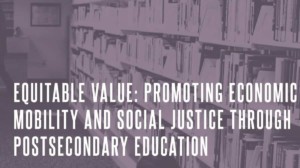The New Equity Agenda
National Journal asks for comments on Hispanic education today. My comments about the new equity agenda are below.
—
Nearing a quarter of the school populations, Hispanic students are general not well served by U.S. K-12 education. Here’s five stat policies that would help:
1. Close persistently failing schools. It looks like any conceivable ESEA deal will eliminate or weaken NCLB’s school accountability framework leaving it up to states to enact the ‘good school promise’ to low income families. That’s not reassuring given the national track record of tolerating chronic failure. It’s not popular, but closing bad schools is the only thing that seems to work.
2. Open good schools. This is something dozens of organizations know a lot about—at least about the old fashion prep school model: common intellectual mission, rigorous core curriculum, strong supports.
3. Expand online opportunity. It’s now possible to offer every student in American access to quality college prep courses and effective teachers. States should ensure that every student has access to multiple online learning providers and choice to the course level.
4. Weighted funding. One ugly remnant of America’s anachronistic approach to governance is funding that reflects community wealth rather than need. This must change if we are to narrow the preparation gap (the percentage of college-ready students). States can simultaneously shift to personal digital learning with portable need-based funding—that way everyone stands to benefit even though states will spend less on affluent kids.
5. Gift of time. Kids that start with academic disadvantages need more time. Mobile learning technology makes it quite affordable to customize learning and double academic time. But it will require that we shift from age-cohorts slogging through print for 180 days to a long year (or year round) competency-based system where there is no failure, just more time and support.








0 Comments
Leave a Comment
Your email address will not be published. All fields are required.